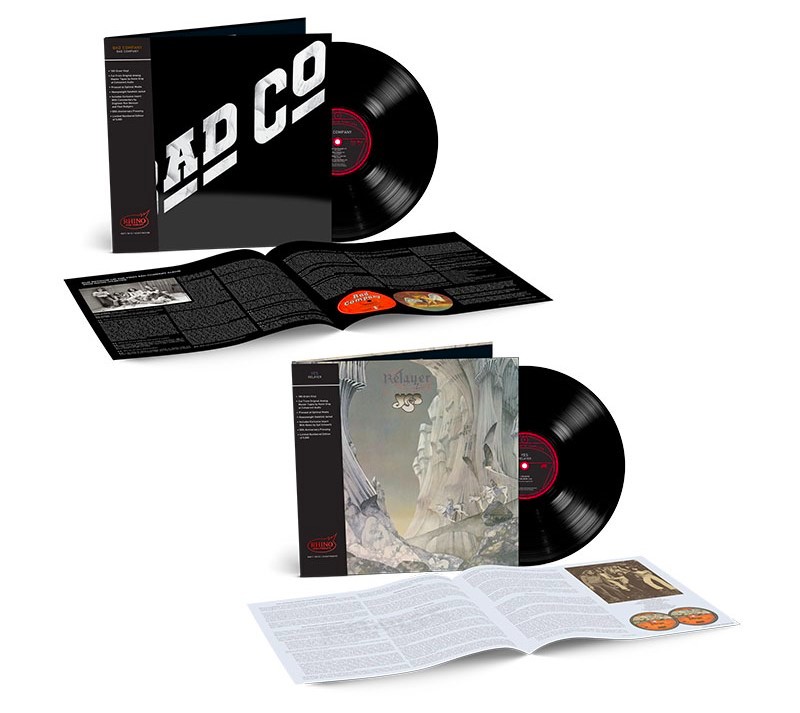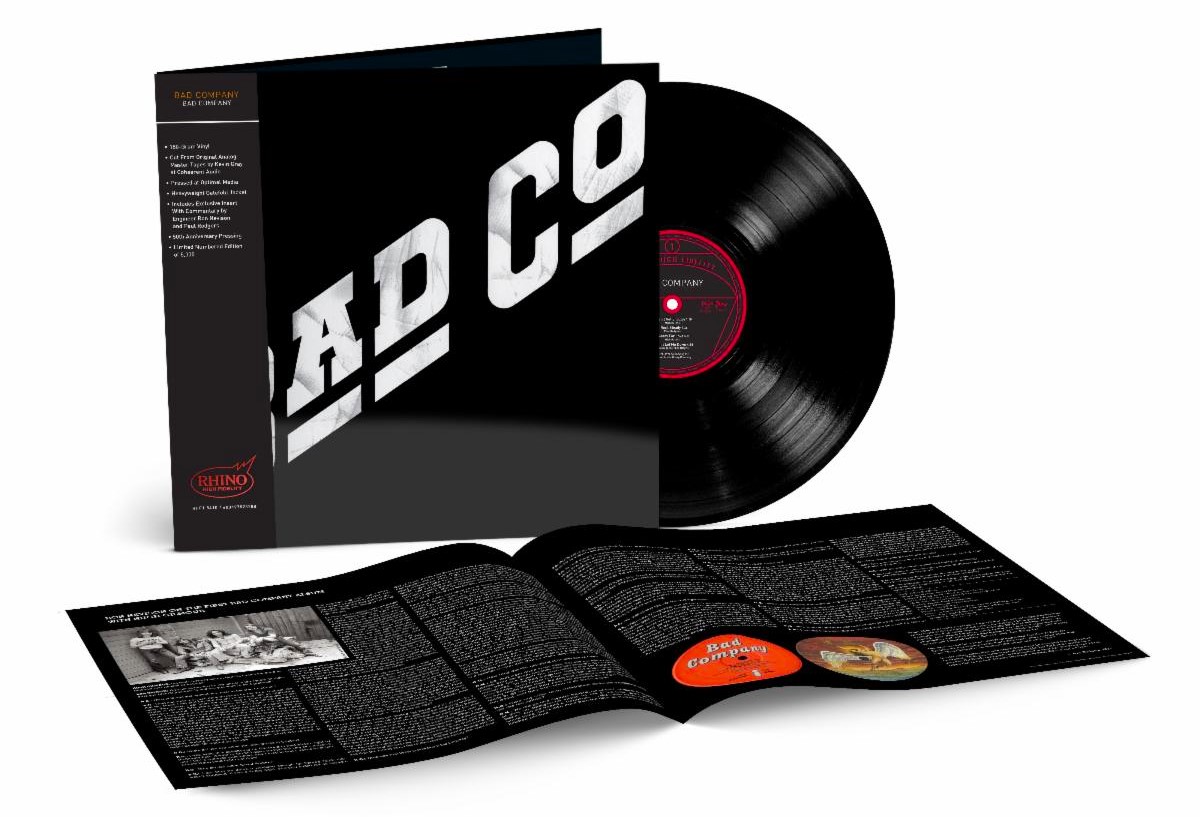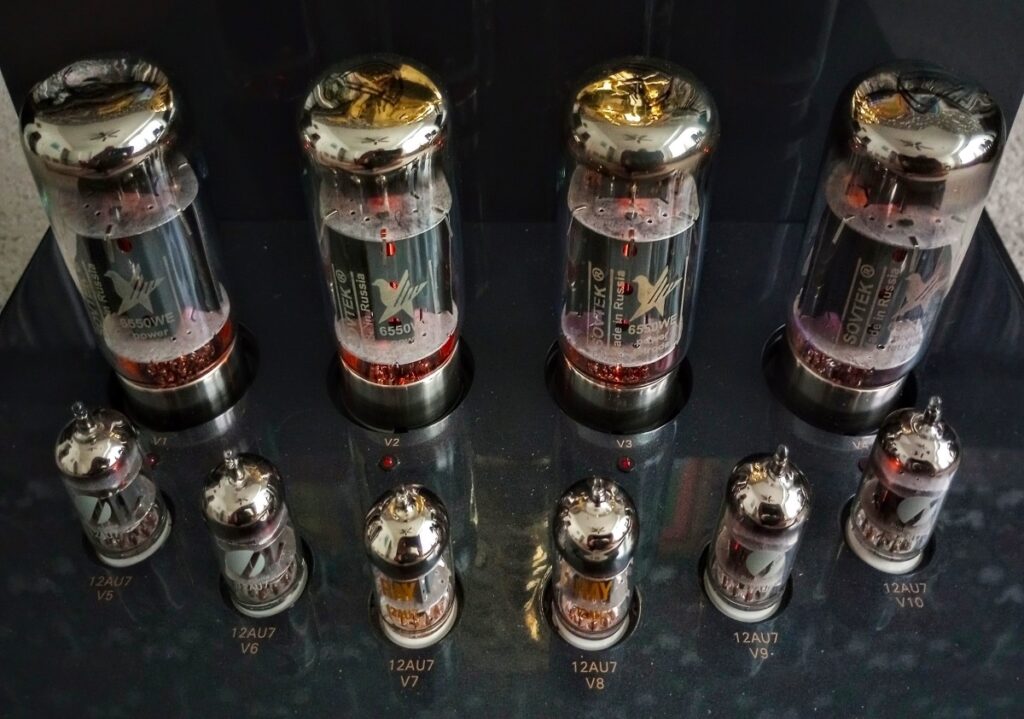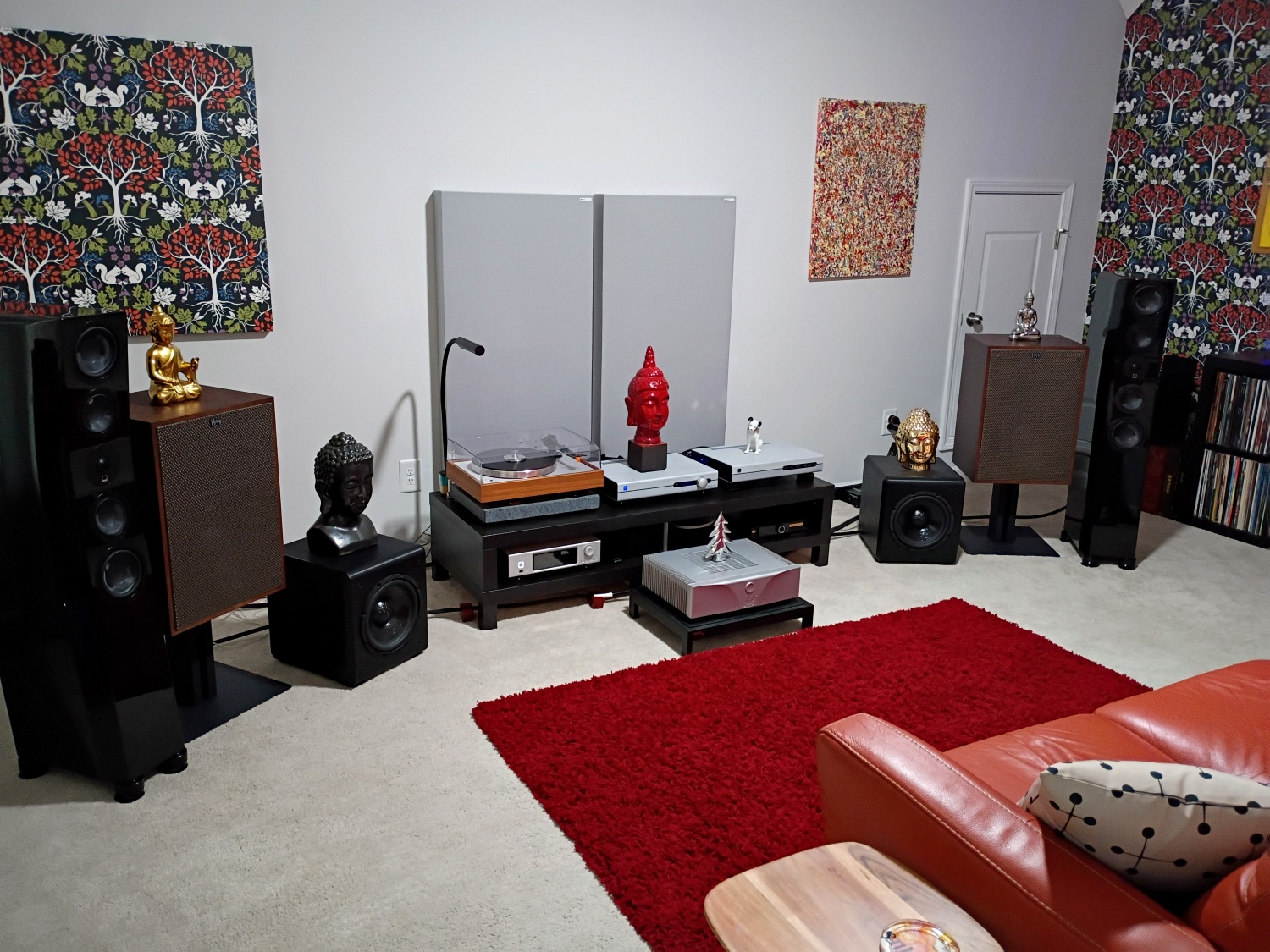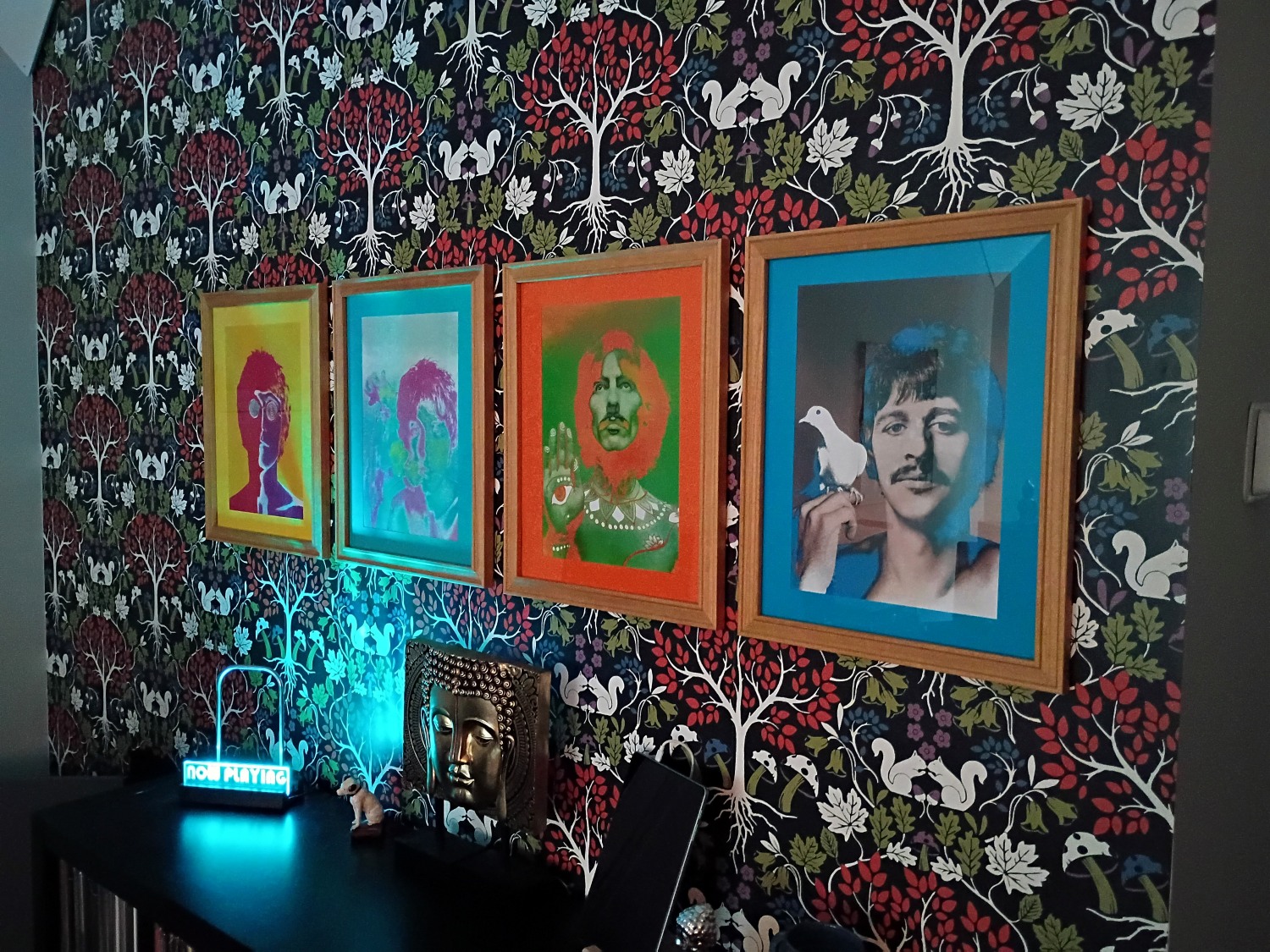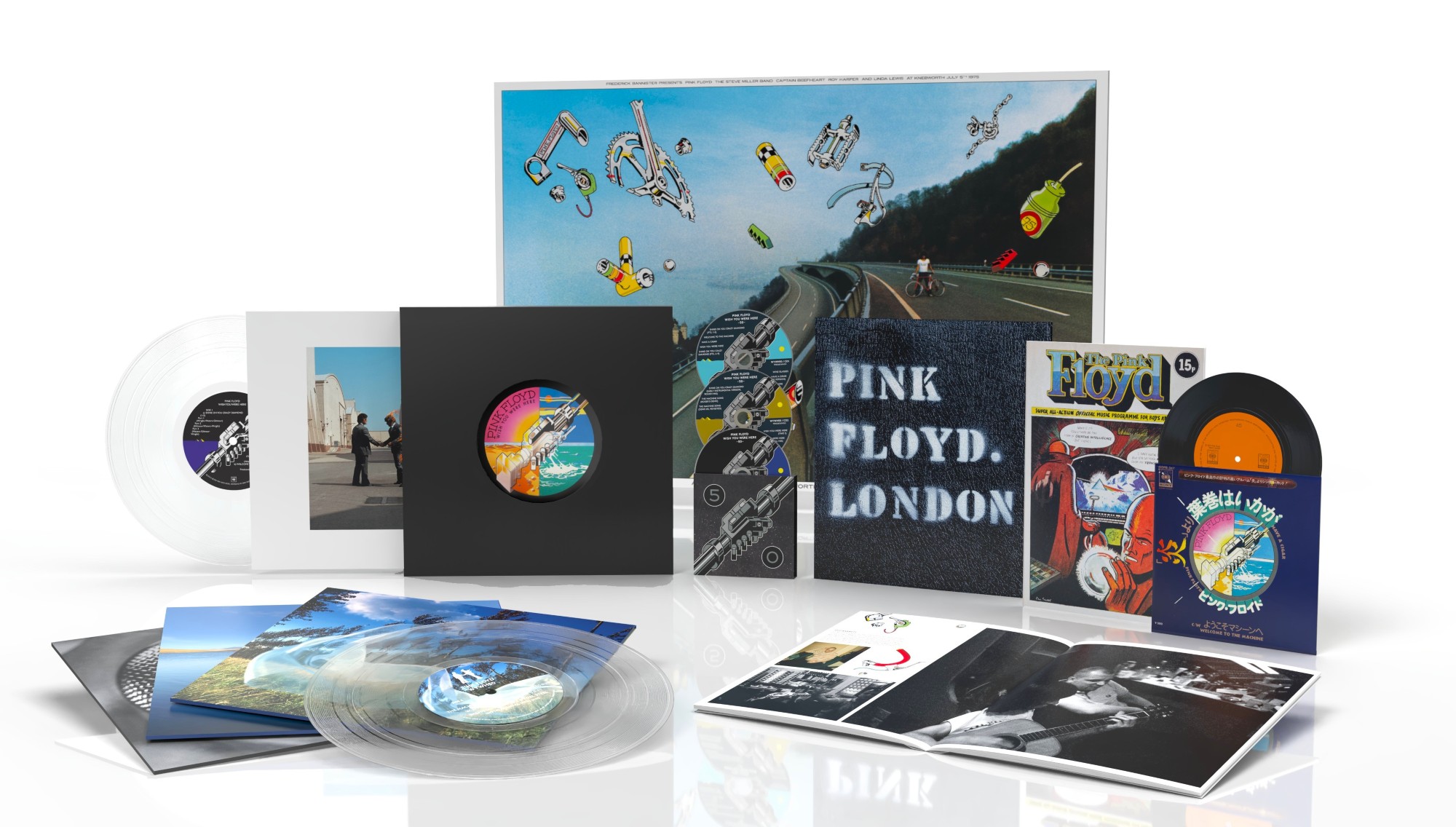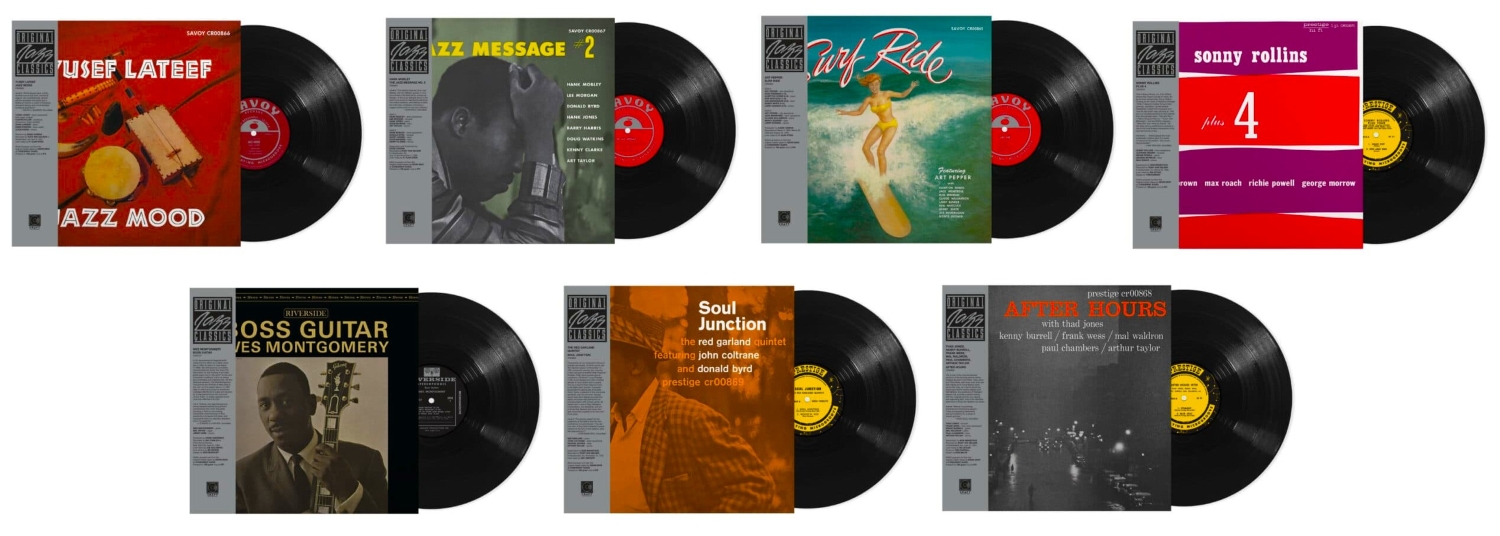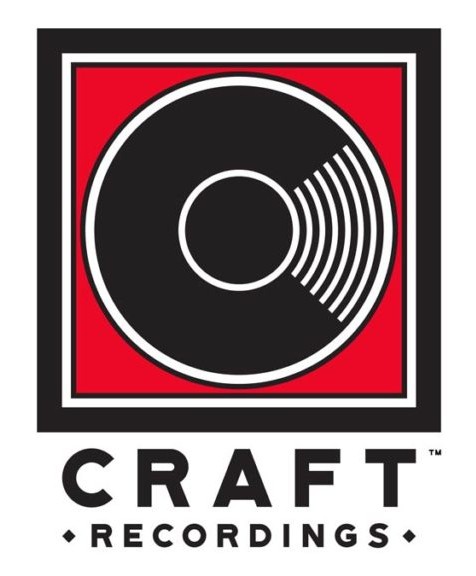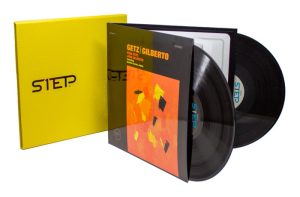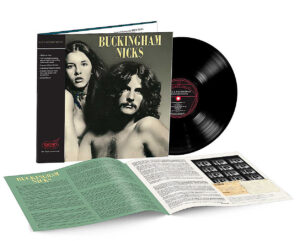Rhino continues their High Fidelity Premium Vinyl Series with a pair of classic new reissues of albums that were both released within the same year, 1974. Including Yes' seventh studio album and their first in the aftermath of Rick Wakeman's departure, Relayer (Atlantic Records), along with Bad Company's hard-rocking eponymous debut, Bad Company (Swan Song Records). The Rhino High Fidelity Series continues to cement its legacy with this latest batch of LPs, both of which are miles beyond any original or reissue versions of either I have in my collection. Rhino High Fidelity releases are manufactured in Germany, and both reissues arrived in heavy, tip-on, Stoughton-style jackets that are very faithful to the originals—and possibly more well-executed. Each album package is beautifully realized; the album jackets are finished with high gloss coatings that highlight the crisp album artwork that's been sourced from the Warner archives. Each reissue jacket arrives with a stylized OBI strip, which enhances their appearance and collectability. And each LP features a newly-designed, but classic-looking label for the Rhino High Fidelity imprint, which also adds to the exclusivity of the series. At the risk of sounding like a broken record, this latest batch of Rhino High Fidelity LPs are truly among the finest high-end reissues currently available. The 180 gram LPs are strictly limited to 5000 numbered copies, are exclusively available from rhino.com, and can be ordered HERE.
Lacquers for both LPs were cut from the original analog stereo master tapes by Kevin Gray at Cohearent Audio using an all-analog, AAA mastering process, and the 180 gram LPs were pressed at Optimal in Germany. The LPs arrived inserted into black paper inner sleeves that are lined with rice paper, which is a perfectionist touch that protects the LPs from scratching, and prevents accumulation of paper dust and static build-up. Each album includes a stylish fold-out insert with recording notes and informative essays from artists and original session personnel; music journalist Syd Schwartz provides the excellent new liner notes for Relayer, and original engineer Ron Nevison and lead singer Paul Rodgers add commentary to the insert for Bad Company. The Rhino High Fidelity LP series is an audiophile's dream come true, and these reissues are exciting on every possible level in terms of production, packaging, and the very high quality of the transfers.
Yes, Relayer. 180 Gram Atlantic Records LP, $39.98 MSRP
Rick Wakeman departed Yes following the Tales From Topographic Oceans tour; he famously disagreed with the band's new direction in the music press, and wasn't happy with the sketches Jon Anderson and Steve Howe had provided him for the band's next album. On Wakeman's 25th birthday, May 18, 1974, his solo album Journey to the Centre of the Earth debuted at No. 1 on the UK Billboard album charts, and he immediately telephoned the band with his resignation. That left Yes quite in the lurch, and they quickly started auditioning a wide range of keyboard players, including the likes of Eddie Jobson and Vangelis. But they eventually settled with a Swiss player, Patrick Moraz, who seemed to have better chemistry with the band members. Yes sequestered to bassist Chris Squire's new home in Virginia Water, Surrey, where Relayer was recorded onsite at his recently constructed New Pipers Studio across a period of several months in mid-1974. Relayer was produced by Eddy Offord and Yes, and Gennaro Rippo engineered the album, which was released on November 29, 1974. Album sales were brisk, with Relayer reaching both the No. 4 and No. 5 positions on the UK and US Billboard album charts, earning gold records in each locale. Relayer was also highly praised by the critics.
Side one features "The Gates of Delirium," which is an expansive, full-album-side length track. It's a mélange of themes, and said to have been loosely based on Tolstoy's War And Peace, Jon Anderson's impressions of the ongoing Vietnam War, and the French sci-fi graphic novel Délirius by Philippe Druillet. And it seems reasonably intuitive that Anderson must have taken the song's title from Druillet's work. "The Gates of Delirium" builds across three distinct movements, beginning with a pounding prelude to war; it rapidly builds momentum and intensity, and eventually segues into an epic battle sequence. Following the battle's cacophonic and crashing conclusion, the third, more lyrical movement brings the sprawling tune to a calming denouement. The song's finale has popularly become known as "Soon," and highligts some of Jon Anderson's most soaring vocal work, as Steve Howe's eloquent and melodic steel guitar accompaniment hastens the song to a stunning conclusion. The battle section features some really jarring crashes in its center, which drummer Alan White created by collecting large carts of car parts from a local junkyard, and abruptly upending them at the appropriate moments, to stunning effect.
Side two opens with "Sound Chaser," which features a remarkably nimble keyboard entrance from Patrick Moraz that's joined by some of the most rapid-fire and propulsive drumming on record from Alan White; the effect is devastatingly gorgeous, and Steve Howe's multiple guitar solos throughout the tune are expressive and intense. Moraz's intro to the song was his first attempt, and the band was so impressed, they left it as-is on the recording. Relayer's closing number, "To Be Over" is based on a theme created by Anderson and Howe, reportedly after taking an idyllic boat ride one afternoon in London's Hyde Park. Jon Anderson's vocal is sheer perfection, Howe solos liberally on both guitar and steel guitar, and Moraz provides a lyrical and classically imbued synth solo near the song's end. It's a perfect ending to a quite nearly perfect album.
I saw Yes on the Relayer tour as part of a badly-planned celebration of my then-girlfriend's birthday. I'd gifted her with LP copies of Close To The Edge and Fragile, along with a pair of concert tickets to the show, all in an ill-advised attempt to hasten her embrace of the band I so loved. It didn't work out as envisioned, but at least I got to see my favorite band on an iconic and historic tour. Relayer has been in heavy rotation across fifty years of my appreciation for the band, and is definitely one of my "desert island" discs.
Bad Company, Bad Company. 180 Gram Swan Song LP, $39.98 MSRP
The "supergroup" Bad Company came about when vocalist Paul Rodgers and drummer Simon Kirke (formerly of the band Free) joined forces with guitarist Mick Ralphs (from Mott The Hoople) and bassist Boz Burrell (from King Crimson). Bad Company was the first band signed to Led Zeppelin's new Swan Song record label; according to Paul Rodgers, the Bad Company name came from an illustration in a Victorian book of manners, warning good children to avoid the "bad company" of unsavory types. Bad Company was the band's debut album, and was recorded in November, 1973, with Ronnie Lane's Mobile Studio in Headley Grange, the site of many classic rock recordings of the era. The band self-produced the album, and Ron Nevison engineered the record. Released on May 24, 1974, Bad Company reached No. 1 and No. 3 on the US and UK album Billboard album charts, went multi-platinum worldwide, and was certified 5x platinum in the US alone. Album sales were propelled by the singles "Can't Get Enough" and "Movin' On," which respectively peaked at No. 5 and No. 19 on the Billboard singles charts.
Side one opens with a trifecta of heavy hitters, Mick Ralphs' ebullient and celebratory lead single "Can't Get Enough," which is followed by a pair of album-oriented-rock staples, Paul Rodgers' propulsive "Rock Steady" and Ralphs' pensive "Ready For Love"—which he originally wrote and recorded with Mott The Hoople (though nobody really remembers that version!). "Rock Steady" is a showcase for Mick Ralph's prowess on the guitar; accompanied by Simon Kirke's explosive drumming, the duo drives Paul Rodgers' incessant screams for the woman of his affection to "turn on your lights...and stay with me a while...and rock steady!" The band slows down the tempo for the moody "Ready For Love," where Ralphs even adds an expressively effective piano solo in the song's center that perfectly matches the intensity of Rodgers' passionate vocal. A bluesy and soulful power ballad, the Rodgers/Ralphs-penned "Don't Let Me Down" brings side one to a nearly perfect conclusion.
Side two opens with another AOR staple, Paul Rodgers and Simon Kirke's "Bad Company," a simmering, evocative cowboy saga that fueled early speculation regarding the band's name and its possible American western roots. Rodgers offers another expressive ballad with "The Way I Choose," followed by the album's second single, Mick Ralphs' spirited "Movin' On." It's a classic tale of the hard life on the road, which ratchets up the tempo and features some of Ralphs' flashiest guitar work. Bad Company reaches its conclusion with the Rodgers/Ralphs tune "Seagull," where Paul Rodgers solos on acoustic guitar and provides the very poignant vocal. It's a subdued and thrilling finale to an album that's often powerful and contemplative, but also rocks hard like no other.
Bad Company is one of the finest examples of Seventies hard rock by a band that fired on all cylinders from the start; its broad-based appeal was clearly evidenced by its impressive album sales. I've owned a copy from the day it was released, and it's been in regular rotation (in one form or another) across five decades in my audio systems. Bad Company, for me, was a perfect "late night driving album," and was almost always in tune with my mood at the end of the day.
Rhino's High Fidelity Premium Vinyl Series LPs Don't Disappoint!
By clicking my name in the header, you can see the components in my dual audio systems. I used my all-analog setup to evaluate both Rhino High Fidelity 180 gram LP reissues of Relayer and Bad Company. The all-analog system features a pair of Vanguard Scout standmount compact monitor loudspeakers; they're in the same vein as classic British monitor designs like the LS3/5A's, and run in tandem with a Caldera 10 subwoofer. That setup also incorporates the excellent PS Audio Stellar phono preamp, and everything is powered by my recently upgraded PrimaLuna EVO 300 tube integrated amplifier, which now features a matched quad of premium Sovtek 6550 power tubes and a matched pair of vintage NOS Brimar 12AU7 input tubes. LP playback was handled by my ProJect Classic EVO turntable that's mounted with an Ortofon Quintet Bronze MC cartridge. The new tubes imbue the Vanguard loudspeakers with a lush but also powerful sound that hearkens back to analog glory days of yore.
Optimal's LP surfaces were perfection incarnate, and were not only exceptionally glossy, but also free of any visible defects; both LPs were also perfectly centered. The Rhino High Fidelity LPs are among the quietest reissues I've experienced, with deathly black backgrounds and an exceptionally low level of any kind of groove noise. My analog system presented these albums with startling realism in the listening room, and I cranked the volume levels during my evaluations like I was hearing them as a giddy teen for the first time ever! I'm a huge fan of both Yes and Bad Company; I've seen Yes in concert multiple times, and I have original LPs and reissues of both of these albums in my collection. The Rhino High Fidelity LPs are far and away the finest version of each of these albums I've ever heard, on any system.
Again, I give Rhino an A+ for this latest installment in the series; the album packages are superb, and visually far exceed the appearance of both my original LPs and the reissues I had on hand for Relayer and Bad Company. The color cast of the printed album jacket for Relayer—which features another of Roger Dean's classic Yes paintings—perfectly matched my Atlantic label original, and was every bit as crisp as the original. While the others in my collection had color tints scattered across an oddly distorted range. I can't imagine either of these titles sounding any better than they do here; Kevin Gray has really outdone himself again in this series, and each of these albums seriously leaped from my loudspeakers! Fans and collectors will want both LPs, which have been in heavy rotation here since showing up last week. Thanks to Grace Fleisher at Shore Fire Media, and everyone at Rhino for the opportunity; the latest batch of Rhino High Fidelity LPs come very highly recommended!
Rhino Entertainment
All images courtesy of Rhino Entertainment and the author




